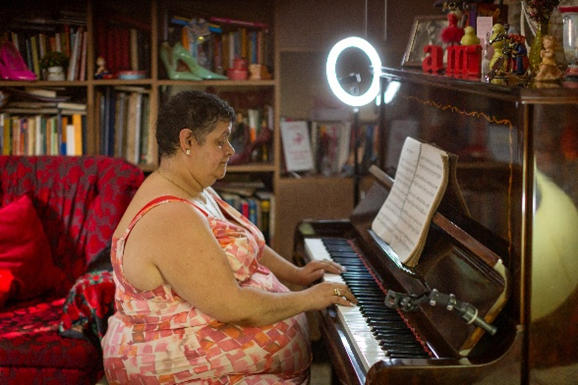
Getting medical interventions
Many people with obesity do not get an obesity diagnosis and treatment from healthcare providers. Find out what you can do to get the help you need.
We have detected that you are located in . Do you want to switch to the local site?
During the menopause many symptoms that affect sleep can also affect your weight. It is important to understand how these symptoms are linked and how you can get a better night’s sleep during the menopause.

Sandra Gonçalves living with obesity, Brazil.
Did you know, according to one study, longer and deeper sleep can increase the likelihood of successful weight reduction in women by 33%? Alongside everyday factors, menopausal symptoms can also contribute to poor sleep. The stresses of daily life alone can cause less or disturbed sleep and this can lead to being at higher risk of obesity. While all these factors can feel like a lot to process, but in this article we will explore the links between obesity, menopause and sleep.
There are two main bodily systems that regulate sleep:
The influence of oestrogen and progesterone on the homeostatic sleep system and circadian rhythm can lead to menopausal symptoms such as insomnia and night sweats. During the menopause, oestrogen levels decrease which in turn, can lead to a decline in quality and amount of sleep. Navigating bodily changes during the menopause can be demanding especially when your sleep is affected.
Lack of sleep and/or disturbed sleep can lead to an increase in eating, mainly snacking on food that is high in fat and carbohydrates, which is so easy to do and often provides a much-needed comfort. Leptin and ghrelin (hormones that balance hunger and fullness) levels in the body can be affected by duration of sleep. Leptin supresses hunger and ghrelin increase hunger. In fact, one study showed, people that have less or disturbed sleep have been shown to have up to a 16% decrease in leptin and up to 15% increase in ghrelin. Feeling tired and hungry is not easy, but improving your amount and quality of sleep will help both feelings.
There are many ways to improve your amount and quality of sleep when going through the menopause which can help with weight management. It can be difficult to find the solutions that work best for you but there are options:
Not getting enough sleep whilst going through the menopause as well as living with obesity can have an impact on your mental health, as it does on lots of women. It is important to seek support from your friends and family. Speaking to a doctor to provide more options to improve your sleep can also be beneficial. There are many women experiencing the same situations, you are not alone, and it can become easier to manage.
HQ25OB00311